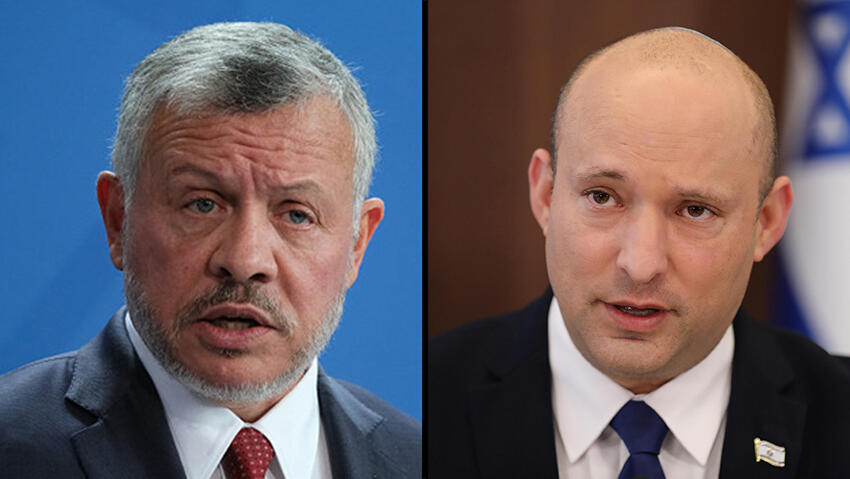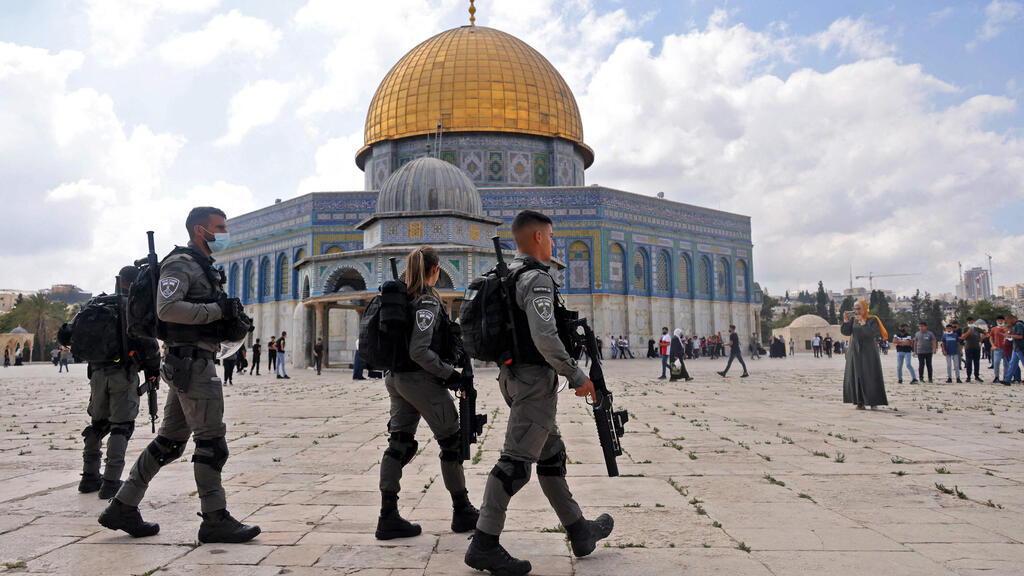Prime Minister Naftali Bennett and Jordan’s King Abdullah II spoke by phone Sunday with the advent of the holy month of Ramadan and amid rising tensions between Israel and the Palestinians.
According to the Royal Palace, the two leaders spoke about regional cooperation, regional issues — chief among them the recent series of terror attacks that has claimed the lives of 11 Israelis in just one week, the consequent Israeli operations meant to thwart future attacks, as well as enabling freedom of worship for Palestinians on the Temple Mount during Ramadan.
2 View gallery


Prime Minister Naftali Bennett and Jordan’s King Abdullah II
(Photo: Reuters, Getty Images)
The palace added that the Jordanian monarch asked Bennett to avoid imposing measures that could restrict access of Muslim worshippers to Jerusalem's al-Aqsa Mosque during Ramadan for fear it could further exacerbate tensions.
The Prime minister’s Office stated that Bennett congratulated Abdullah, his family and the Jordanian people in honor of Ramadan, and thanked the king for "his clear statement against the terrorist attacks that have taken place in Israel in recent days.”
The two leaders' conversation comes at the tail-end of a flurry of diplomatic meetings meant to strengthen relations between Israel and Jordan and lower Israeli-Palestinian tensions ahead of Ramadan — which culminated in President Isaac Herzog’s historic meeting with the Jordanian monarch in the Al Husseiniya Palace in Amman last week.
2 View gallery


Border Police officers in front of the Dome of the Rock, located near the Al-Aqsa Mosque
(Photo: AFP)
During Herzog's visit, Abdullah reportedly condemned the deadly terror attacks in Be'er Sheva, Hadera and Bnei Brak, and called for continued negotiations in order "to allow our region to realize its full potential."
Herzog's visit came a day after Defense Minister Benny Gantz’s own meeting with the Jordanian king, during which the two discussed Israel's preparations for Ramadan — a period of heightened religious fervor — as well as other "regional issues and challenges."
Despite the neighboring countries' ongoing efforts to mend fences, Jordan's foreign minister was notably absent from last week's five-way regional summit — attended by the foreign ministers of the United Arab Emirates, Bahrain, Morocco, Egypt, and U.S. Secretary of State Antony Blinken.

